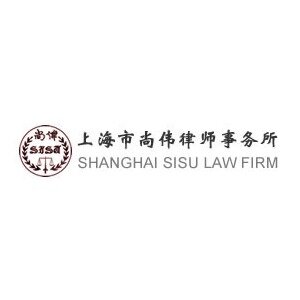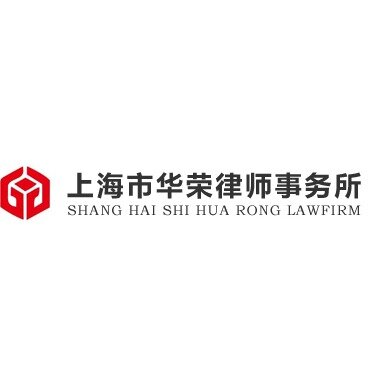Best Real Estate Contracts and Negotiations Lawyers in Shanghai
Share your needs with us, get contacted by law firms.
Free. Takes 2 min.
Free Guide to Hiring a Real Estate Lawyer
List of the best lawyers in Shanghai, China
About Real Estate Contracts and Negotiations Law in Shanghai, China
Real estate contracts and negotiations in Shanghai are governed by a complex and evolving legal framework. The need for accurate and reliable contracts is paramount due to the high value and significant economic implications of real estate transactions in one of China's most bustling cities. Legal practitioners in this field are tasked with navigating regulations set by both Shanghai's local government and the broader Chinese legal system. This guide aims to provide foundational insights for anyone seeking to understand or engage with real estate transactions in this vibrant marketplace.
Why You May Need a Lawyer
Real estate contracts and negotiations involve several intricate processes that may require legal expertise. Here are some common situations where individuals might seek professional legal assistance:
- Complex Transactions: Buying or selling property involves numerous legal documents and procedures that require specialized knowledge to navigate.
- Dispute Resolution: Disagreements over contract terms or property boundaries that may necessitate legal intervention.
- Compliance Issues: Ensuring that all transactions comply with local laws and regulations to avoid any legal pitfalls.
- Contract Drafting and Review: Crafting comprehensive contracts that protect client interests and minimize risks.
- Investment Guidance: Legal advice on property investments, particularly for foreigners with limited understanding of local laws.
Local Laws Overview
Shanghai's real estate law is influenced by both local regulations and national laws. Key legal aspects include:
- Regulated Market: Shanghai implements guidelines that control the buying and selling of property to stabilize pricing and manage market demand.
- Property Rights: Understanding the distinctions between different property titles, such as leasehold versus freehold.
- Foreign Ownership Restrictions: Specific regulations that limit foreign investment in property, requiring legal guidance to navigate.
- Contractual Obligations: Laws governing the enforceability of contracts, including mandatory provisions and optional clauses.
- Tax Implications: Various taxes applicable to property transactions, including value-added tax (VAT) and property tax, which require careful legal planning.
Frequently Asked Questions
What documents are needed for a real estate transaction in Shanghai?
Essential documents include the title deed, identity proof of parties, sales contract, tax certificates, and in some cases, mortgage agreements.
Are there any restrictions on foreign ownership of property in Shanghai?
Yes, foreign individuals and entities face restrictions and generally need to demonstrate proof of residency and financial capability, along with other regulatory compliance.
How is the price determined in a real estate transaction?
The price is usually influenced by market valuation, negotiations between buyer and seller, and must comply with any governmental pricing regulations.
What taxes apply to real estate purchases in Shanghai?
Applicable taxes can include deed tax, stamp duty, and potentially VAT. It's crucial to consult a lawyer to understand the full tax implications.
What is the usual process for forming a real estate contract?
The process typically involves negotiations, due diligence by both parties, contract drafting, legal review, and finally, signing and registration.
How can I ensure a property has a clear title?
Conduct a thorough title search through the local real estate registry and seek legal verification to ensure there are no liens or encumbrances.
Can real estate contracts be modified after signing?
Contracts can be modified through mutual agreement and a formal amendment process, which should be legally documented and executed.
What are common pitfalls in real estate negotiations?
Misunderstanding contractual terms, ignoring local laws, insufficient due diligence, and overlooking tax obligations are frequent pitfalls.
What is the role of a notary in property transactions?
A notary can authenticate and witness the signing of documents, ensuring they are legally binding and appropriately executed.
How do I handle a dispute over a real estate contract?
Start by reviewing the contract's dispute resolution clause, and consider mediation or arbitration before pursuing litigation. Legal counsel is advisable.
Additional Resources
Several resources can be invaluable for those seeking legal advice on real estate contracts and negotiations:
- Shanghai Real Estate Exchange Center: For comprehensive property registration and transaction services.
- China Law Society: Offers resources and information regarding nationwide legal practices.
- Shanghai Municipal Bureau of Justice: Provides guidance on legal aid services available in the region.
- Local Bar Associations: Connect individuals with qualified legal professionals specializing in real estate.
Next Steps
If you need legal assistance in real estate contracts and negotiations in Shanghai, consider the following steps:
- Identify Your Needs: Clearly define the legal services you require to narrow down your search for the right professional.
- Research Legal Professionals: Use resources like local bar associations to find specialized real estate lawyers.
- Consultations: Arrange consultations with potential lawyers to discuss your case and evaluate their expertise.
- Hire a Lawyer: Once satisfied with your research and consultations, proceed to formally engage a lawyer to assist with your real estate needs.
- Stay Informed: Continue educating yourself about local laws and practices to better navigate future real estate transactions.
Lawzana helps you find the best lawyers and law firms in Shanghai through a curated and pre-screened list of qualified legal professionals. Our platform offers rankings and detailed profiles of attorneys and law firms, allowing you to compare based on practice areas, including Real Estate Contracts and Negotiations, experience, and client feedback.
Each profile includes a description of the firm's areas of practice, client reviews, team members and partners, year of establishment, spoken languages, office locations, contact information, social media presence, and any published articles or resources. Most firms on our platform speak English and are experienced in both local and international legal matters.
Get a quote from top-rated law firms in Shanghai, China — quickly, securely, and without unnecessary hassle.
Disclaimer:
The information provided on this page is for general informational purposes only and does not constitute legal advice. While we strive to ensure the accuracy and relevance of the content, legal information may change over time, and interpretations of the law can vary. You should always consult with a qualified legal professional for advice specific to your situation.
We disclaim all liability for actions taken or not taken based on the content of this page. If you believe any information is incorrect or outdated, please contact us, and we will review and update it where appropriate.

















